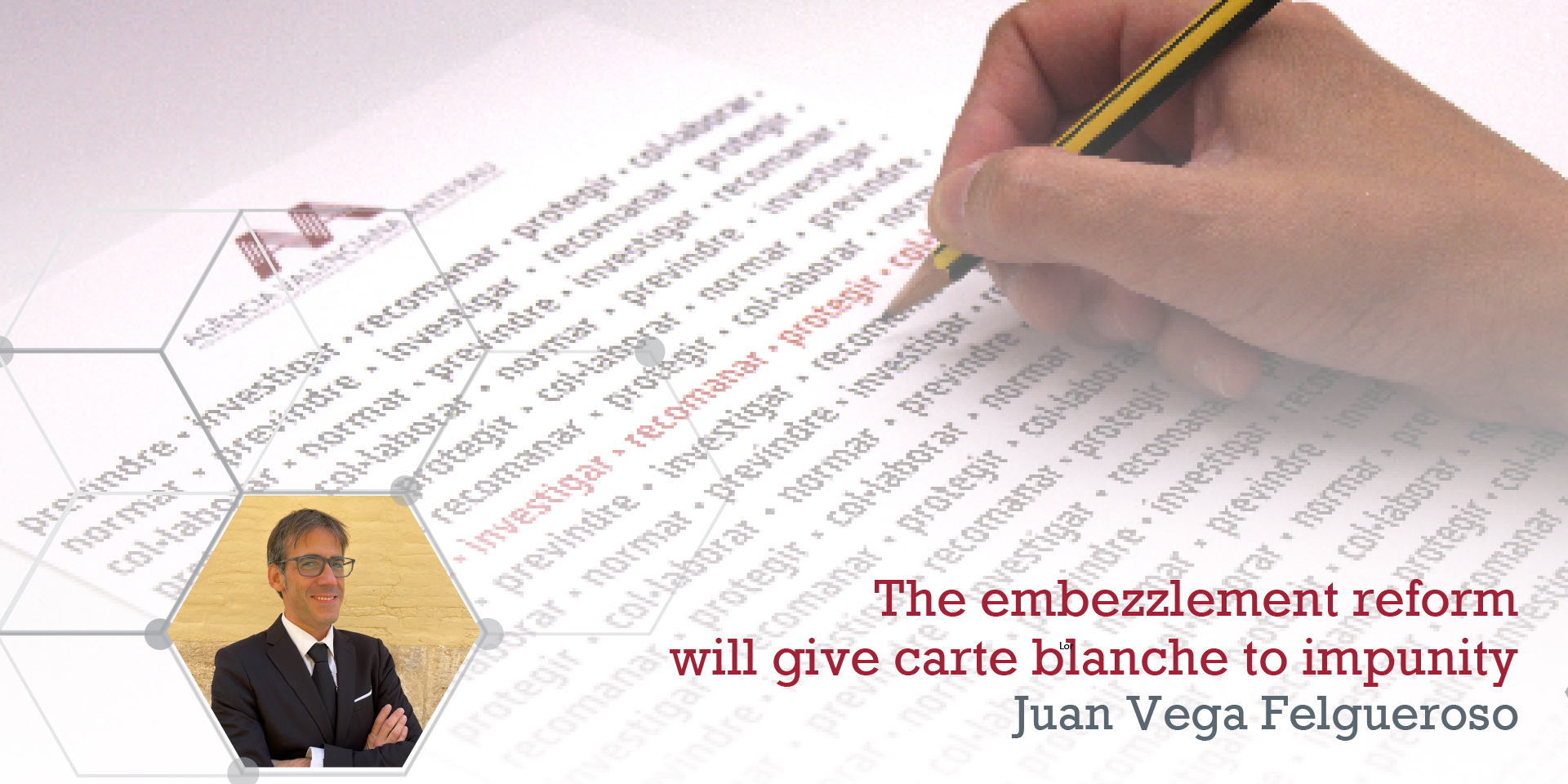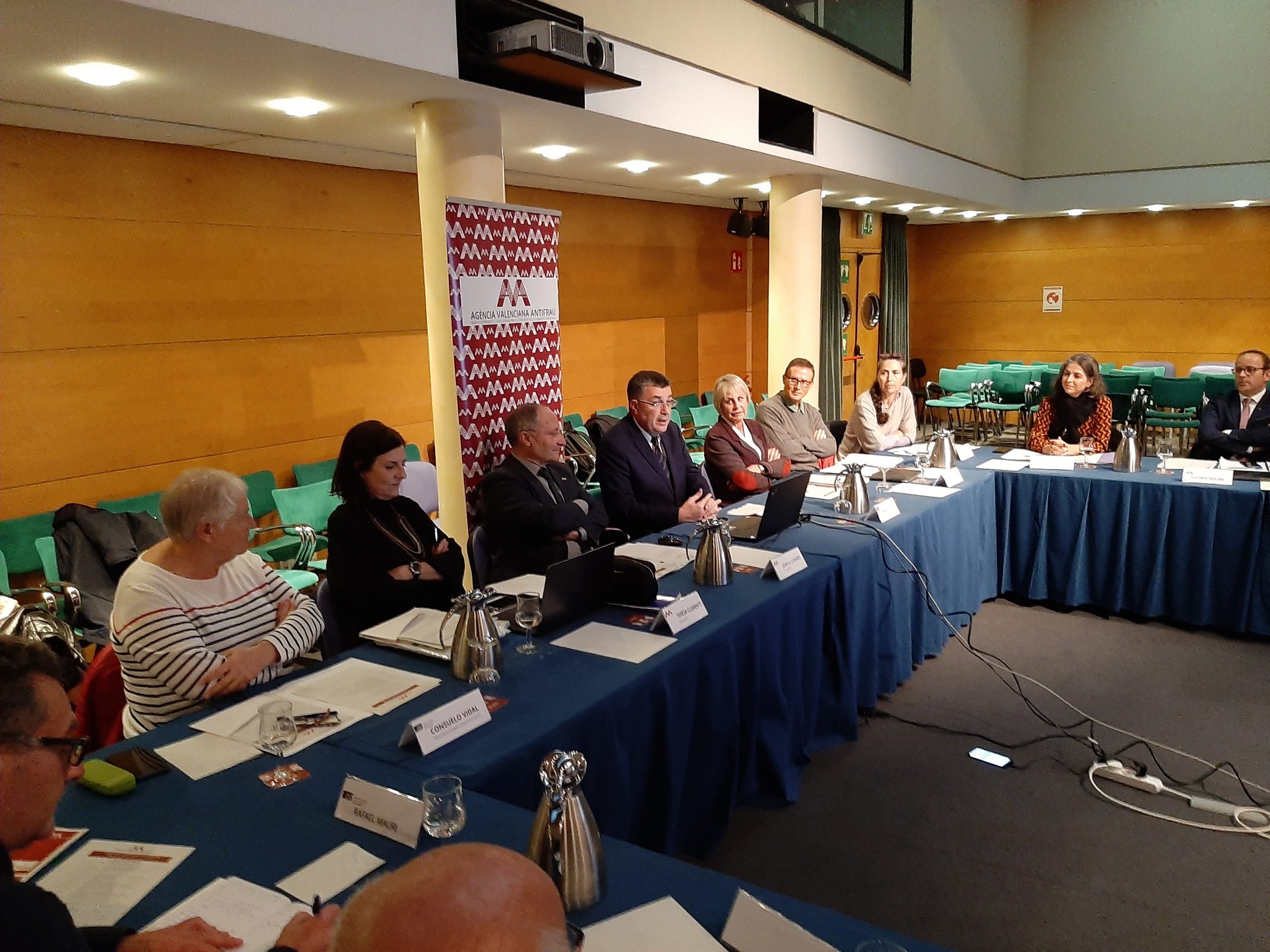On December 9, 2022, the beginning of the celebration of the twentieth anniversary of the UN Convention against Corruption was commemorated. And precisely this signon December 9, forgetting the progress andbenefits of recent decades in the fight against corruption, has been the moment chosen to introduce into the parliamentary debate a very ill-advised proposal to reform the crime of embezzlement.
The proposed amendment seeks to replace the current regulation of embezzlement, which is currently configured in the broad concept of unfair administration of public assets, to return to the limited structure and previous drafting of 1995, which only It consideredpunishable the concrete appropriation of public property.
The return to the 1995 newsroom is a real step backwards in the fight against corruption, since it hastaken a clean sweep of all the advances that have been taking shape in the legal regulation of embezzlement over the years, particularly since the United Nations Convention.
1/ Dysfunctions of the 1995 regulation.
The current regulation of embezzlement, of 2015, is upone a technical improvement a-legal of notable importance, it should be noted that the return to the outdated regulation of 1995 will mean going through the disappointment of the numerous judicial procedures in which, although the existence of acts of corruption had been proven. However, it was not possible to condemn the technical shortcomings of that regulation. An example is the scandal of the municipal funeral home of a City Council that, valued at more than 7 million euros, was sold at public auction for the shameful amount of € 0.60. And despite the seriousness of the fact, the Supreme Court could not convict, since the crime of embezzlement in the 1995 wording did not typify cases such as the sale of public assets below its price. On the contrary, the current regulation of 2015, in its concept of unfair administration, does allow the punishment of this type of corrupt actions.
2/ The profit motive and attenuated punitive duality.
Nor is it correct to return tothe outdated concept of profit in embezzlement. In this type of corruption, the decisive factor is not that the authority or official profits or tries to benefit a third party, but the damage caused to the citizenry. Embezzlement is a crime of damage to the administration and public property, which excludes the need to include a profit motive.
And it is also a mistake to try to establish atype of mitigated embezzlementfor those cases in which, without there being a spirit of appropriation, the public patrimony is destined to private and alien uses. Thediversion of the public from its destination, for the benefit of private uses and those outside the public function, should not be deserving of an attenuated penalty. Thus, the technical coldness of criminal typicity deserves in the present case to be put in front of the mirror of reality and the concrete assumptions of everyday life. This is the case, among other common examples, of a mayor who cedes the use, to a private mercantile for disco activity, of the ground floor of a public building, initially projectedor destined for a municipal nursery school. The action, very serious, with the amendment of reform of embezzlement would be configured with a penalty of such a sunor 6 months in prison.
3/ The penalty.
The amendment for the modification of the crime of embezzlement aims to return to the typical regulation of 1995 but maintaining the penalties of 2015, which does not seem dissuasive or successful and this because the penalty set in the comparable legal systems of the European Union turns out to be more severe, a path that should be followed in the internal system.
Thus, under French law the offence comparable to embezzlement, ‘la soustraction et détournement de biens’, is punishable by ten years’ imprisonment; Article314 punishes the appropriation by an official of money or movable property – both public and private – with imprisonment of three to ten years.
4/ Conclusions.
The intended modification of the crime of embezzlement means giving carte blanche to impunity in embezzlement, limiting the possibilities of the system fighting against this scourge of democracy.
The return to the 1995 regulation of the crime of embezzlement will mean that numerous actions, which are contrary to the correct administration and the proper use of public assets, will not be duly prosecuted, which will affect the quality of services for citizens, since corruption entails a decrease in the quality of education, health, social protection and other public sector activities.
Juan Vega
Lawyer of the Valencian Anti-Fraud Agency
*This article was published in the newspaper “El Mundo” in its national edition and can be consulted here
https://www.elmundo.es/opinion/columnistas/2022/12/14/6398bb0efc6c834f048b45e5.html




